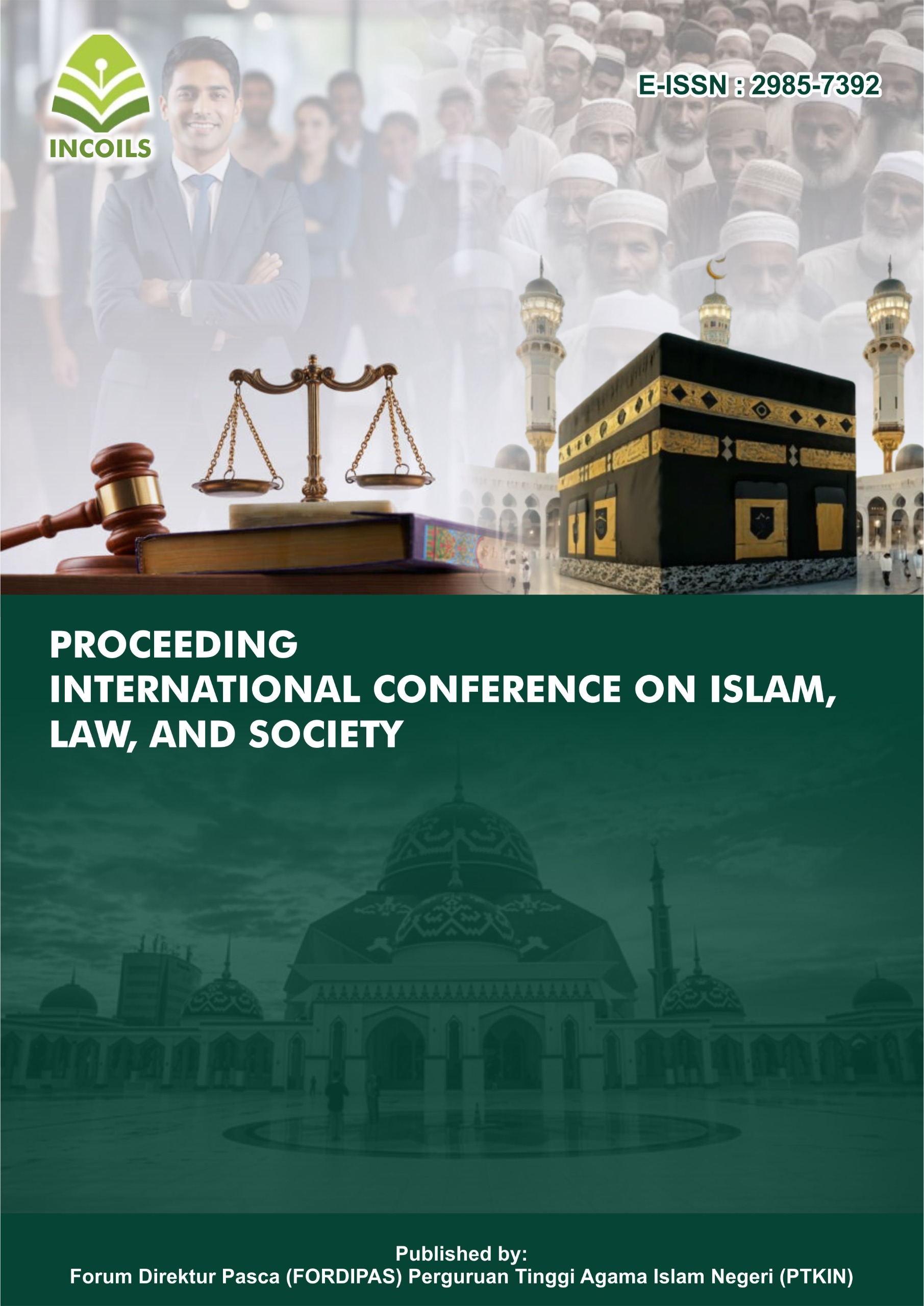GENDER EQUALITY ANALYSIS FROM ISLAMIC AND SOCIAL PERSPECTIVE
DOI:
https://doi.org/10.70062/incoils.v2i1.54Keywords:
Gender, Islam, SocialAbstract
This study aims to examine Islamic and social views on gender equality as well as obstacles or barriers to gender equality. This research is a type of qualitative research with a literature study approach. Various literatures related to research studies have become a reference source in this research such as books, journal articles, and other supporting documents. The results of the study show that gender is a perspective that distinguishes men and women through social and cultural processes constructed by humans, through a long process in the history of human civilization. Gender is also not permanent and not God's nature, so that gender can change according to the needs and demands of humans in their time. In the view of Islam men and women are in the same position, without any difference. Indonesian women today are in direct need of serious treatment, especially in terms of policy. Various development programs are still male-biased. Women's participation in development activities is relatively low and is still limited to aspects that are closely related to the domestic or reproductive sector. Religious and social constructs put women in their proper place, as well as dismantling human history that has lasted for centuries and which is challenged not only by the social system consisting of men, but also from women themselves.
References
Ahmad Suaedy. 2000. Kekerasan dalam Perspektif Pesantren. Jakarta: Grashindo.
Hanun Asrohah. 2008. Sosiologi Pendidikan, Surabaya: Kopertais Press.
Hasan, B. 2019. “Gender dan Ketidakadilan”, Jurnal SIGNAL, 7 (1), h. 65-66
Krisnalita, L. Y. 2018. “Perempuan, HAM, dan Permasalahannya Di Indonesia”, Binamulia Hukum, 7 (1), h. 72-73.
Moser, C.O.N., 1993. Gender planing and development; theory, practice and training, London: Routledge.
Mosse, Julia Cleves. 1996. Half The World, Half a Chance, terj. Hastian Silawati Gender dan Pembangunan. Yogyakarta: Pustaka Pelajar.
Muawanah, Elfi. 2009. Pendidikan Gender dan Hak Asasi Manusia, Yokyakarta: Sukses Offset.
Mufidah Ch. 2010. Bingkai Sosial Gender: Islam, Strukturasi dan Konstruksi Sosial, Malang: UIN Maliki Press.
Mufidah Ch. 2010. Bingkai Sosial Gender: Islam, Strukturasi dan Konstruksi Sosial. Malang: UIN Maliki Press.
Nasaruddin Umar. 2001. Argumen Kesetaraan Gender: Perspektif Al-Qur'an, (Jakarta: Paramadina.
Purwati, Eni. 2005. dan Hanun Asrohah, Bias Gender dalam Pendidikan Islam, Surabaya:Alpha.
Remiswal. 2013. Menggugah Partisipasi Gender di Lingkungan Komunitas Lokal, Yogyakarta: Graha Ilmu.
Siti Muslikhati. 2004. Feminisme dan Pemberdayaan Perempuan dalam Timbangan Islam. Jakarta: Gema Insani.
Waston, M. 2014. “Pengarusutamaan Gender dalam Program Pembangunan”, Jurnal Pendidikan Ilmu-Ilmu Sosial, 6 (2), h. 126.
Zaitunah Subhan. 2015. Al-Qur’an Dan Perempuan Menuju Kesetaraan Gender Dalan Penafsiran. Jakarta: Kencana.
Zaitunah Subhan. 2015. Al-Qur’an dan Perempuan, Menuju Kesetaraan Gender dalam Penafsiran. Jakarta: Kencana.
Downloads
Published
How to Cite
Issue
Section
License

This work is licensed under a Creative Commons Attribution-ShareAlike 4.0 International License.







